Hand eczema is a common skin condition that causes dry, itchy, and inflamed skin on the hands. It can affect any part of the hand, but it most commonly affects the palms, fingers, and wrists.
Causes of hand eczema:
Hand eczema, also known as hand dermatitis, can have a variety of contributing factors, with the main culprits falling into two broad categories:
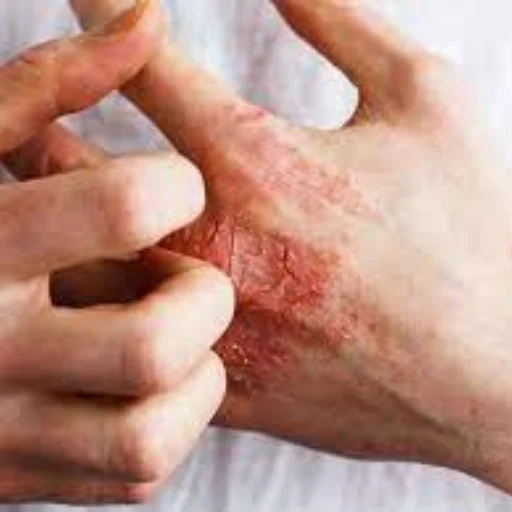
1. Irritant Contact Dermatitis:
- Environmental irritants: Soaps, detergents, solvents, chemicals (found in cleaning products, paints, fertilizers, etc.), harsh shampoos, friction from tools or repetitive hand washing can all break down the skin’s natural barrier, leading to dryness, inflammation, and eczema.
- Occupational exposure: Certain professions, like hairdressers, chefs, construction workers, mechanics, and healthcare workers, are more prone to hand eczema due to frequent contact with irritants in their workplaces.
- Water immersion: Frequent exposure to water, especially hot water, can strip the skin of its natural oils and worsen eczema symptoms.
2. Allergic Contact Dermatitis:
- Nickel: One of the most common contact allergens, found in jewelry, watch straps, coins, and some cosmetics.
- Rubber: Latex gloves, elastic bands, and certain shoe components can trigger allergic reactions in some individuals.
- Fragrances: Perfumes, colognes, and even some soaps and laundry detergents may contain fragrance chemicals that trigger allergies in some people.
- Plants: Certain plants, like poison ivy, poison oak, and chrysanthemums, can cause allergic reactions on contact.
- Medications: Topical ointments and creams can sometimes trigger allergic reactions.
Additional factors:
- Genetics: People with a family history of eczema are more likely to develop it themselves.
- Stress: Emotional stress can worsen eczema symptoms.
- Underlying skin conditions: Other skin conditions, like atopic dermatitis, can co-occur with hand eczema and potentially aggravate it.
Identifying the Cause:
Pinpointing the exact cause of hand eczema can be tricky, as it often involves a combination of factors. A dermatologist can help with patch testing, a diagnostic procedure to identify potential allergens, and by discussing your daily activities and potential exposures.
Remember, managing hand eczema involves not only managing symptoms but also identifying and avoiding triggers whenever possible. If you have any concerns or questions, always consult a healthcare professional for personalized advice and treatment options.
Symptoms of hand eczema:
The symptoms of hand eczema can vary depending on the severity and type, but some of the most common ones include:

General:
- Dryness: This is often the first sign and can range from mild tightness to flaking and scaling.
- Itching: This can be intense and persistent, sometimes leading to scratching and further damaging the skin.
- Redness: The affected areas may appear red and inflamed, especially during flare-ups.
- Scaling: Dry, dead skin cells build up on the surface, creating a scaly or rough texture.
- Cracking: Deep cracks can develop, especially on the palms and fingertips, leading to pain and bleeding.
Specifics:
- Irritant contact dermatitis: Blisters are less common with this type but may appear in severe cases. Pain and burning sensations are also more likely.
- Allergic contact dermatitis: Tiny, itchy blisters that group together, often resembling tapioca pearls, are characteristic of this type.
- Dyshidrotic eczema: This affects the palms and soles and causes deep, itchy blisters that can weep or burst.
Other possible symptoms:
- Thickening of the skin
- Burning sensation, especially after contact with water
- Pain, especially when cracks deepen
- Bleeding from cracked skin
- Infection (rare, but more likely with open wounds)
Severity:
Hand eczema can range from mild to severe, with symptoms varying in intensity and duration. Mild cases may only have dryness and mild itching, while severe cases can have deep cracks, bleeding, and significant discomfort.
If you experience any of these symptoms, it’s important to consult a doctor or dermatologist for diagnosis and proper treatment. They can help identify the underlying cause and recommend the best course of action to manage your symptoms and prevent future flare-ups.
Remember, early diagnosis and management are key to controlling hand eczema and preventing complications.
Types of hand eczema:
Hand eczema, also known as hand dermatitis, encompasses a group of skin conditions causing dryness, irritation, and inflammation on the hands. Different types of hand eczema present with distinct characteristics and triggers. Here’s a breakdown of the most common ones:

1. Irritant Contact Dermatitis:
- Cause: Direct contact with irritants like soaps, detergents, solvents, chemicals, and even water.
- Symptoms: Dryness, redness, scaling, cracking, burning sensation, and sometimes blisters.
2. Allergic Contact Dermatitis:
- Cause: Allergic reaction to substances like nickel (jewelry, watch straps), rubber (gloves), fragrances (soaps, lotions), or certain plants.
- Symptoms: Intense itching, tiny, grouped blisters resembling tapioca pearls, redness, and swelling.
3. Dyshidrotic Eczema:
- Cause: Exact cause unknown, but stress, sweating, and metal allergies might play a role.
- Symptoms: Deep, itchy blisters on palms and soles, often in clusters, which may weep or burst.
4. Atopic Dermatitis:
- Cause: Chronic inflammatory skin condition with genetic predisposition, often triggered by environmental factors.
- Symptoms: Dry, itchy, inflamed skin with scaling and cracking, sometimes affecting other areas besides hands.
5. Seborrheic Dermatitis:
- Cause: Fungal overgrowth on oily skin areas.
- Symptoms: Red, greasy patches with yellowish scales, often affecting scalp, eyebrows, and beard area, but can also involve hands.
Treatment of hand eczema:
Treating hand eczema effectively requires a multi-pronged approach, targeting both symptom relief and managing the underlying cause. Here’s a breakdown of the main treatment options:

1. Moisturizing: This is the cornerstone of hand eczema management. Apply fragrance-free, emollient-rich moisturizers frequently, especially after hand washing. Look for ointments, creams, or lotions with ingredients like petrolatum, glycerin, ceramides, and hyaluronic acid.
2. Avoiding Triggers: Identify and avoid the specific irritants or allergens causing your eczema. This might involve wearing gloves for cleaning, switching to fragrance-free products, or avoiding certain plants. Patch testing can help pinpoint potential allergens.
3. Topical Steroids: These medications reduce inflammation and itching, but should be used sparingly and under doctor’s supervision due to potential side effects. Different strengths are available depending on the severity of your eczema.
4. Phototherapy: Light therapy, like ultraviolet B (UVB) therapy, can be helpful for moderate to severe cases. It helps reduce inflammation and control the immune system’s response.
5. Other Topical Treatments: In certain cases, other topical medications like calcineurin inhibitors (tacrolimus, pimecrolimus) or coal tar may be used.
6. Oral Medications: In severe cases, oral corticosteroids or immunosuppressant medications might be prescribed to manage widespread or persistent eczema.
7. Stress Management: Stress can worsen eczema symptoms. Techniques like relaxation exercises, yoga, and meditation can help manage stress and improve overall well-being.
https://blog.derma.pk/?s=eczema
Additional Tips:
- Protect your hands: Wear gloves when handling irritants or performing tasks that could worsen your eczema.
- Maintain good hygiene: Wash your hands regularly with lukewarm water and a gentle, fragrance-free soap. Pat dry gently instead of rubbing.
- Manage underlying conditions: Treat any underlying skin conditions like atopic dermatitis that might be contributing to hand eczema.
- Keep your nails short: Short, clean nails can help prevent scratching and further irritation.
- Consult a doctor: Regularly consult your doctor or dermatologist for monitoring your progress and adjusting treatment as needed.
Remember, the best treatment plan for hand eczema is individualized and depends on the type, severity, and underlying causes. Always seek professional medical advice for proper diagnosis and personalized treatment.
Final thoughts:
Hand eczema is a common skin condition causing dryness, irritation, and inflammation on the hands. It can significantly impact daily life and well-being. Fortunately, with proper management and treatment, you can effectively control your symptoms and improve your quality of life.
Derma and Dental Clinic:
Derma & Dental Clinic stands out with its team of experienced doctors backed by scientific evidence in their chosen fields. Their diverse range of medical-grade procedures offer tailored solutions for various skin and dental needs. You can confidently book your consultation online or by phone and embark on your journey towards healthier skin and a radiant smile.
Location: Bahria Town, Lahore
Specialties: Dermatology and Dental Care
Website: Derma.pk
For consultation:
- Online at Dermatology.pk
- WhatsApp: +923205999650
- Phone: 03041115000
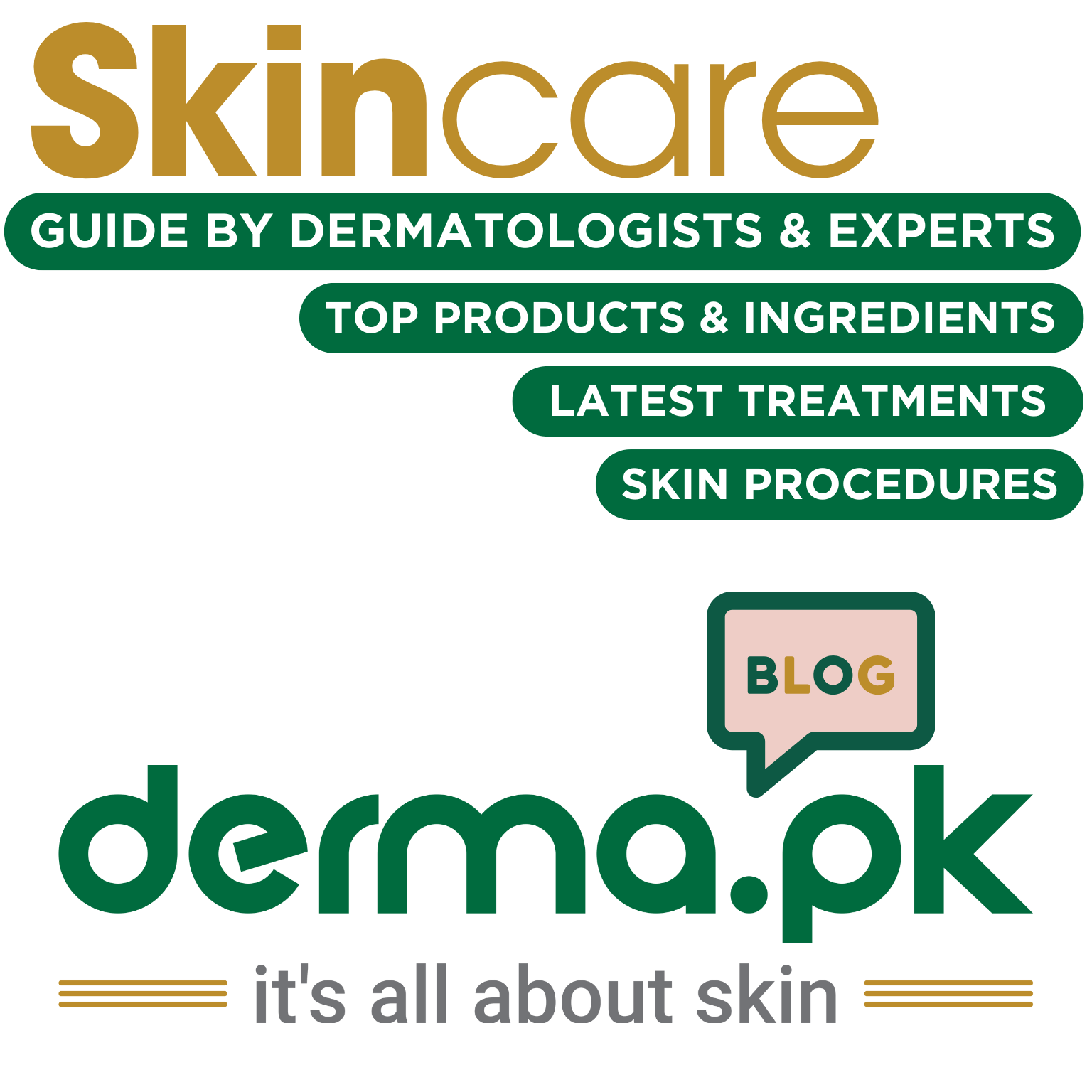
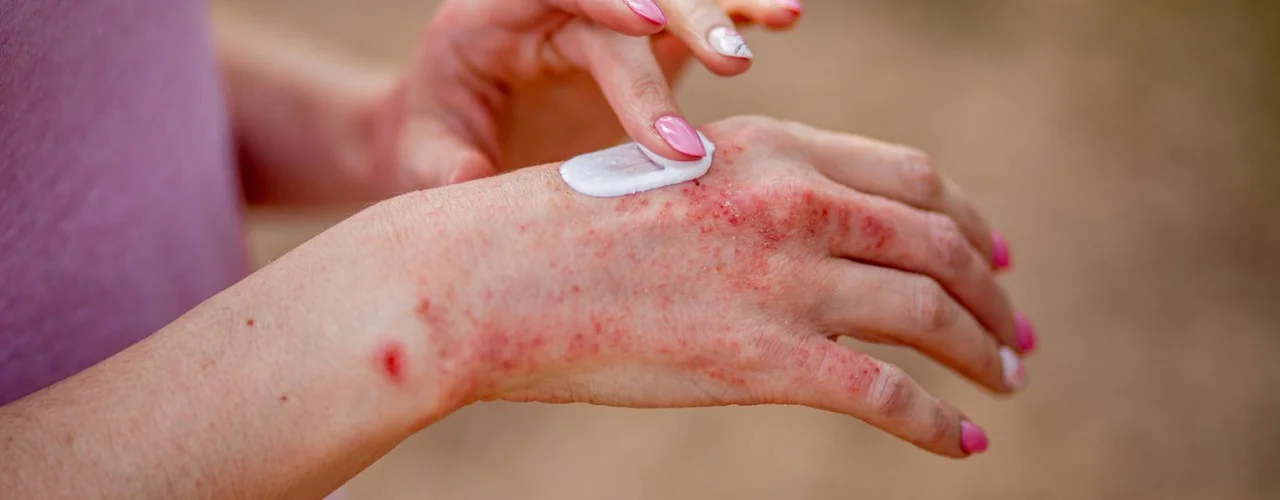



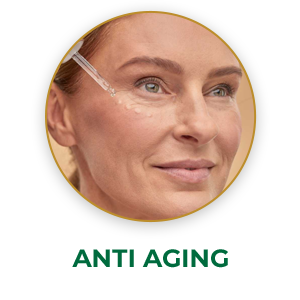




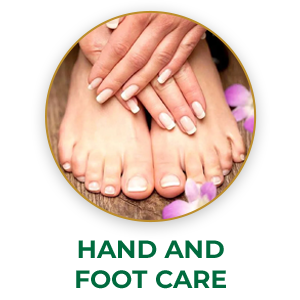



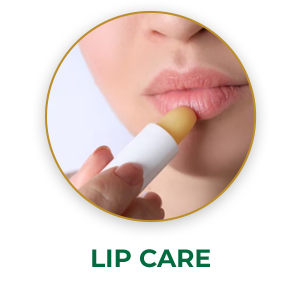





You are a very persuasive writer. I can see this in your article. You have a way of writing compelling information that sparks much interest.